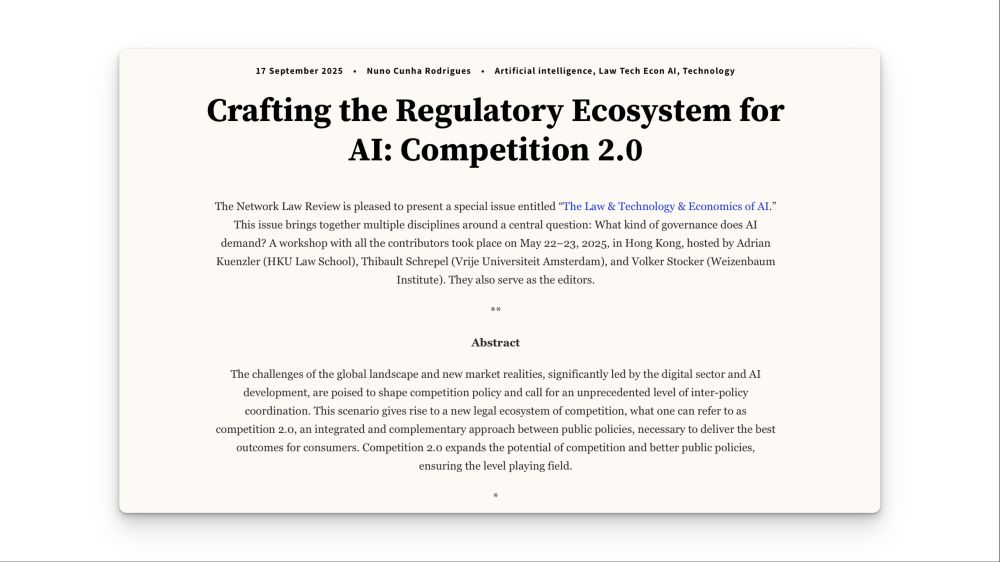Thibault Schrepel
@profschrepel.bsky.social
400 followers
130 following
330 posts
Associate Prof VU Amsterdam • Faculty Affiliate Stanford • Into Running 🏃🏻
#antitrust #AI #complexityscience #digitalmarkets #blockchain
📕 www.thibaultschrepel.com
📻 https://podcasters.spotify.com/pod/show/scalingtheory
Posts
Media
Videos
Starter Packs
Pinned
Reposted by Thibault Schrepel
Reposted by Thibault Schrepel
Reposted by Thibault Schrepel




















